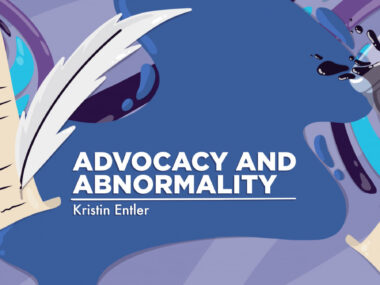Use of CFTR Modulators May Protect Against Severe COVID-19
Written by |

Taking so-called CFTR modulators — medications to correct the disease-causing faulty CFTR protein in cystic fibrosis (CF) — may significantly reduce a patient’s risk of severe COVID-19, according to a study by an international team of researchers.
In fact, non-lung transplant CF patients in the U.S. and the U.K. using CFTR modulators were nearly 60% less likely to be hospitalized with supplemental oxygen due to an infection with SARS-CoV-2, the virus that causes COVID-19, data showed.
Notably, the global study also found that minority patients were at greater risk than white individuals of being admitted to the hospital and receiving supplemental oxygen for SARS-CoV-2. Other CF patients facing a higher risk of hospitalization were older people and those who had low lung function, poor nutrition, an organ transplant, or CF-related diabetes.
“This is the first study to show that there is a protective effect from the use of CFTR modulator therapy and that people with CF from an ethnic minority are at more risk of severe infection with SARS-CoV-2,” the researchers wrote.
These findings mean that “patients eligible for these medications should have immediate access to improve health and potentially protect against severe COVID-19 disease,” according to the team.
The study, “Factors associated with clinical progression to severe COVID-19 in people with cystic fibrosis: a global observational study,” was published in the Journal of Cystic Fibrosis.
From the beginning of the pandemic, scientists have been closely watching how COVID-19 may manifest in patients with chronic lung diseases such as CF.
It is known that patients with CF are admitted to the hospital more often due to COVID-19 than the general population, and that those who have an organ transplant or CF-related diabetes may be particularly vulnerable to severe disease. However, the “existing literature is largely descriptive,” according to the researchers.
To learn more about the factors contributing to more severe COVID-19 in patients with CF, the team pulled data from 22 countries taking part in the CF Registry Global Collaboration. All data were collected between Feb. 1 and Dec. 13, 2020 — prior to the introduction of vaccines against COVID-19.
The study included 1,452 patients with CF who also tested positive for SARS-CoV-2. The number of patients per country ranged from zero in New Zealand to 751 in the U.S. Their median age was 24, and 421 (29.0%) were children younger than 18.
More than 90% of the patients (1,315) had not had an organ transplant. The remaining 137 (9.4%) had undergone a solid organ transplant — most commonly a lung transplant. Those who had a transplant were a median 11 years older than those who had not (34 vs. 23 years).
Symptoms of COVID-19 were present in 1,082 (74.5%) of the patients. The most common was fever, experienced by 558 individuals (38.4%), followed by increased cough in 522 (36.0%).
Of all patients, 316 (21.8%) were admitted to the hospital; 128 (40.5%) required supplemental oxygen while hospitalized.
The proportion of patients who were hospitalized was greater among those who had a transplant than among those who had not (58% vs. 18%). Transplant patients also were more commonly admitted to the intensive care unit (13.9% vs. 2.1%) and required invasive ventilation to help with breathing (6.6% vs. 0.8%).
When the researchers looked at which factors were linked to a more severe course of COVID-19, they found that a low lung function was associated with a nine times higher risk of being hospitalized with supplemental oxygen. Lung function was assessed based on a test that measures the percentage of air that can be forced from the lungs in one second (FEV1). An FEV1 of less than 40% was considered to indicate low lung function.
Other factors were older age, being non-white, and having a transplant, which increased the risk of being hospitalized with supplemental oxygen by about 2.5 times. Having CF-related diabetes increased the risk by about 50%.
“An important new finding of this study that has not previously been reported is that being of non-white race appears to be associated with a higher risk of severe infection for people with CF,” the researchers wrote.
Importantly, patients were initially differentiated into four categories based on race: white, Black, Asian, and other. However, in the analyses, these categories were combined into just two — white and non-white. This was “due to variations in how racial groups are defined across countries and low numbers in non-white groups,” the researchers wrote.
Notably, patients of Hispanic ethnicity were “recorded as white race, which in the US made up 13% of their [group].”
The data showed that 17.3% of nonwhite patients (14 of 81) were hospitalized with supplemental oxygen as compared with 6.1% of white patients (58 of 951). Among Black patients, 23.1% (6 of 26) were hospitalized with oxygen.
“This is in-line with results for the general population, which may be associated with socioeconomic or genetic factors as well as pathophysiological differences,” the researchers wrote.
Further, the team said that it was “significant” and “worth noting” that the high rate of risk of severe COVID-19 among minority patients occurred “despite our study classifying people of Hispanic race/ethnicity as white.”
“Evidence from the USA confirm Hispanics populations have worse outcomes with SARS-CoV-2,” they wrote.
Also important was the “protective effect” seen with the use of CFTR modulators, the researchers noted.
There were a total of 1,198 patients (82.5%) who had at least one copy of the F508del mutation in the CFTR gene — the most common type of mutation known to cause CF. More than half (751 or 51.7%) of these patients were taking CFTR modulators.
As the researchers watched for differences between those who took CFTR modulators and those who did not, they found that those receiving such therapy had a lower risk of being hospitalized with supplemental oxygen. In the U.S. and the U.K., the risk among non-transplant patients was reduced by 59%, an analysis showed.
“These results could help guide clinicians and care teams when recommending mitigation strategies to the CF community,” the researchers concluded.







